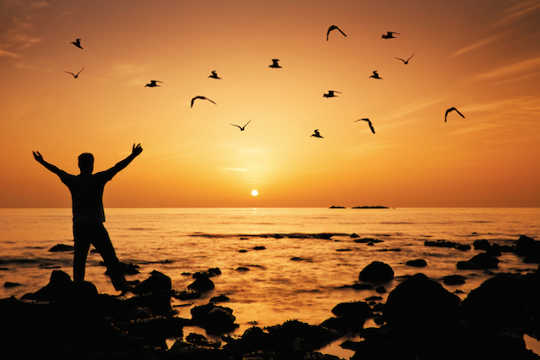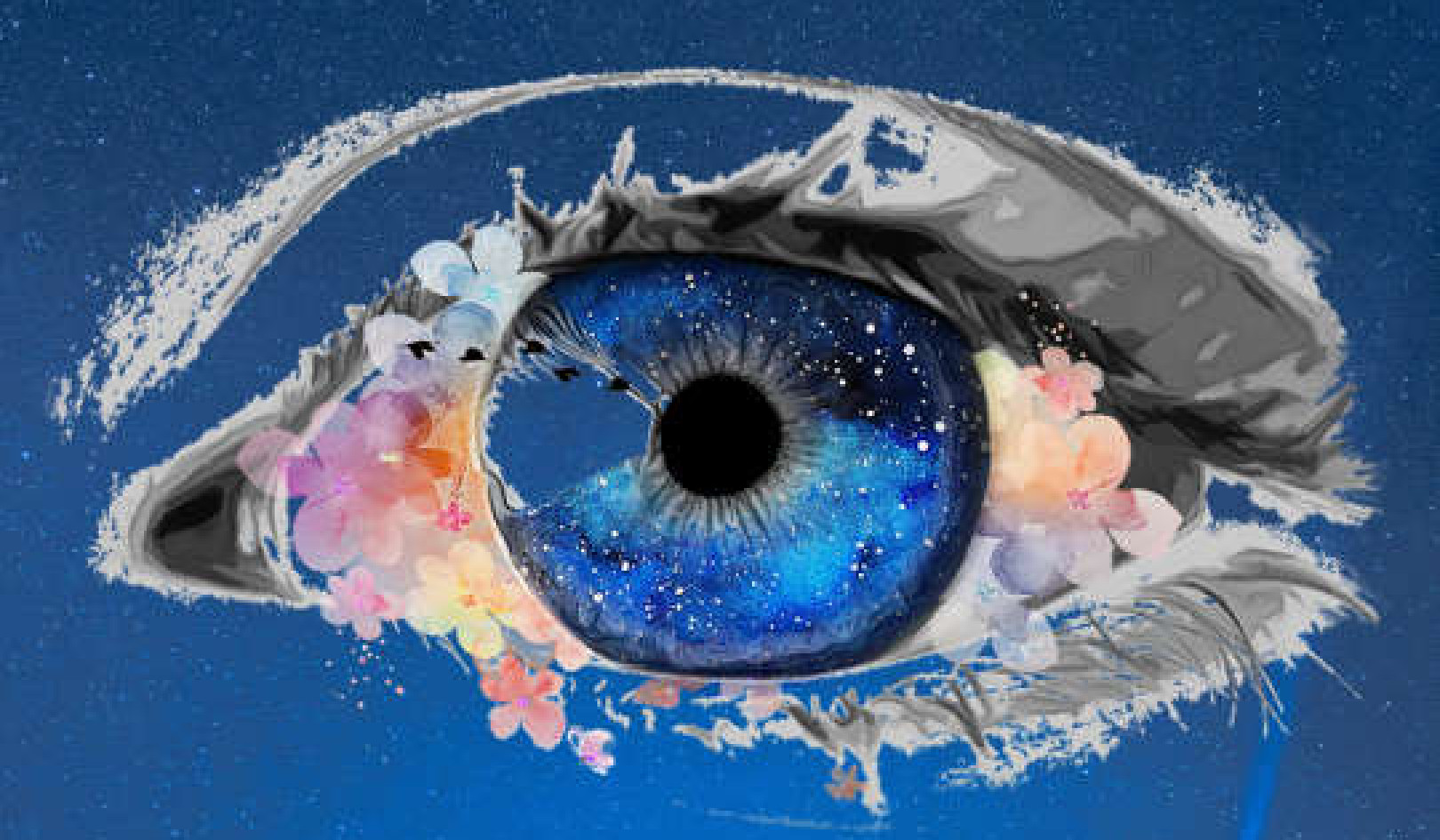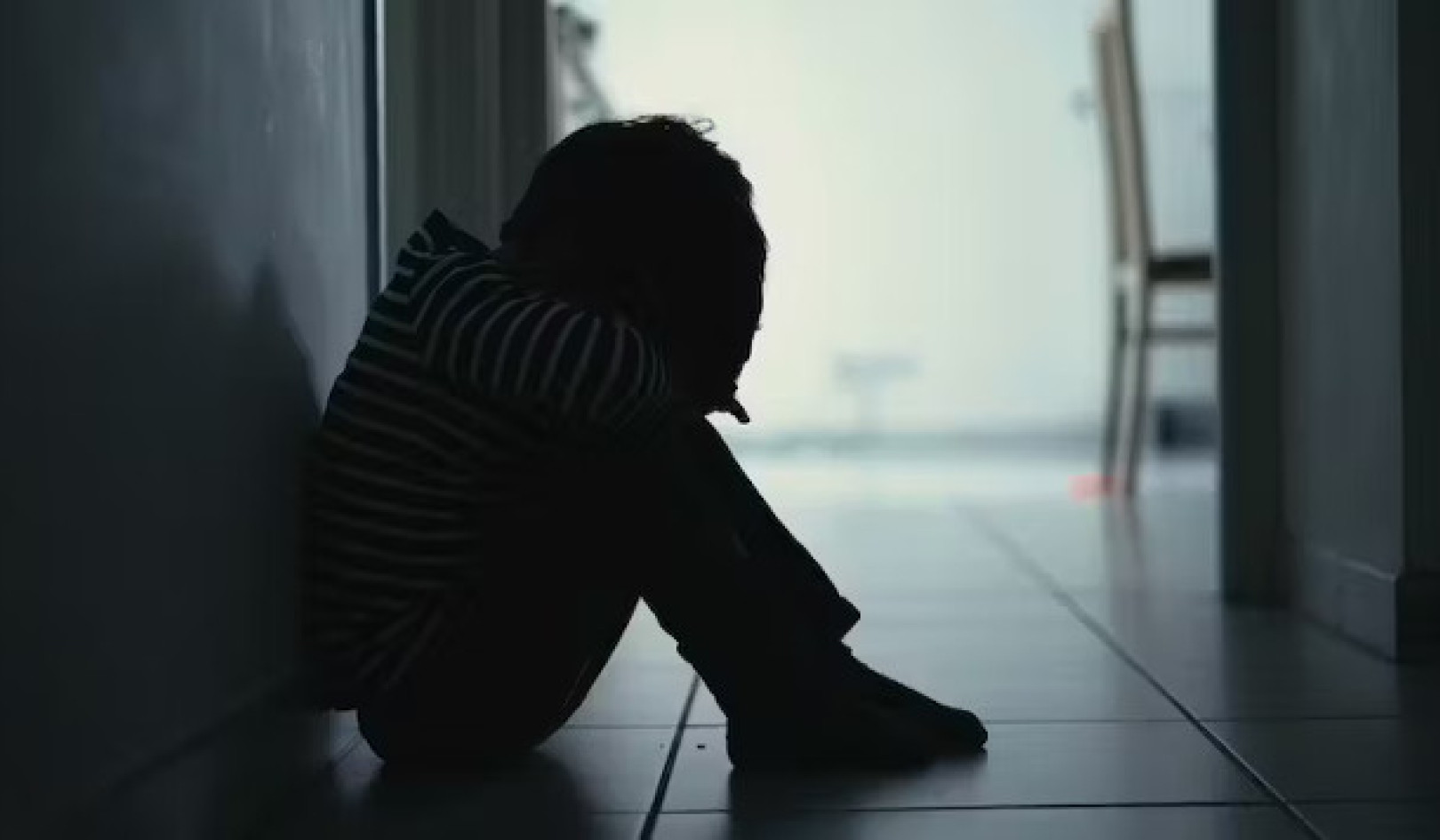
If I had to choose a logo, one that represented my life, it would have to be a U-Haul. The only folks I know who have moved as frequently as my family are the Israelites from the Book of Exodus.
Through almost forty years my husband, Les, and I have hauled our belongings from one dwelling to another at least every five years in search of, uh, manna, I reckon. People ask why we've relocated so often. I've learned to quip, "To keep down the dust bunnies."
The truth is the Exodus bug bit my hubby at a very young age, and he just loves to wander. Oh, we never go far -- we've lived in the same town most of our thirty-nine years of marriage. But Les just goes and goes and goes. Like the famous pink rabbit whose batteries keep his furry feet padding around life's landscape, he gives new dimension to the term "bunny hop."
Early in our marriage I didn't mind the hopping around. In fact, it felt like an adventure. But after the first fifteen moves, I grew weary of cardboard boxes and broken stuff.
Honestly, I've never had a move, no matter how close by, that we didn't lose, break, or damage some of our belongings. I've become quite adept at repairing skinned furniture, gluing chipped figurines, and patching fabric tears. Inevitably tables are jammed against doorframes, glass is cracked in transport, and protruding thingamabobs snag cushions.
Once, in a family effort to move our items into a home, we formed a bucket brigade between the truck and the new house to pass along our belongings. In the handoff a world globe was being tossed from one set of youthful hands to another, when it tumbled to the ground, jolted down the driveway, and crashed into the mailbox post. The orb split in two, right along the equator.
"You've broken my world," I whimpered.
The helpers rolled their eyes at my acute case of melodrama.
"Don't worry, honey. I'll glue it back together later," my husband assured me.
Sure enough, after a few days Les, the mobile fix-it man, repaired the cracked globe. Although I must say it never sat properly on its axis again, and I noted, even though great effort had been taken, the hemispheres didn't match up. Also, some noticeable scars were left across the earth's terrain from the raucous journey.
Perhaps your world has been broken in a similar fashion. Perhaps a job loss, a divorce, a serious illness, or a death has split your heart in two.
Can one exist in a fractured world with any sense of a fixed reference? If our hearts and dreams have been broken or scarred by life's journey, how might we recover? Must we be ongoing victims of rocky circumstances, careless people, and deliberate potshots hurled by our enemies? How can we experience comfort in the midst of heartbreak? I know I've asked myself these questions.
Tattered Hearts
Twenty-five years ago, as a young adult, circumstances felt as if they had spun out of control, and I was so emotionally frayed that everyday activities (such as washing dishes) overwhelmed me. Depression, insecurity, fear, guilt, and anger dominated my terrain. And the hemispheres of my brain didn't seem to match up, which left my thoughts scattered and my heart scarred.
My world was reduced to the four walls of my home -- actually to the size of my mattress, for I feared to leave the safety of my bed. I waited for God to rescue me. And he did. But not at all in the way I expected. I'll tell you more about that later in the book, but here's a little glimpse at how I still have twinges of aftereffects from that time, when my heart was so damaged.
Last November I spoke at a conference held on a Caribbean cruise ship. Since this was my first cruise, I was a bit apprehensive about leaving land so far behind. I mean, what if we were in surround-sea and I wanted to get off? I don't swim, and I wasn't sure how far one could dog-paddle nor did I want to find out. I'm grateful that, once we set sail (I've always wanted to say that), I loved the sea, and I found even the vigorous waves added a pleasing rhythm to the ride.
At one of our ports, I signed up for a small submarine excursion 125 feet below the water level. When I read about it in the brochure, I thought it would be an adventuresome thing to do, but as we boarded the minuscule, bobbing vehicle, I was having second thoughts. Inside the sub were two long, wooden benches where the passengers sat shoulder-to-shoulder with those next to them and back-to-back with those behind them. Quite cozy. Reminiscent, actually, of sardines tucked ever so friendly-like in an oily can, minus the oil. We all faced windows that allowed us to view the undersea world. As the craft descended, I realized, ready or not, I was committed. Glub, glub, glub.
We witnessed schools of darting fish, strange eels sticking eerily out of the sand like crooked sticks, various sea urchins, and hills and valleys. I was enthralled. I hadn't realized how many dimensions the ocean's terrain offered or how fascinating I would find it to see underwater life skimming by. One of my greatest delights was when a large turtle wafted past us. Those creatures might be bulldozers on land, but in the water they are wondrous sea-angels.
Before I realized it, we were surfacing, and I climbed out, pleased for the experience. But on the way back to the cruise ship, I was surprised to hear comments from some of the other sub participants.
"Well, that was disappointing." "I didn't think it was worth the price." "I thought it would be more colorful." "Dull, if you ask me."
I was amazed. Why, I would have paid the price many times over for the watery show. But then I realized that the greatest part of the experience for me was that I had done it at all. Twenty-five years ago, I had collected a myriad of fears and had become an agoraphobic. And even though since then I've traveled a long, open road of freedom, I still have fears to face (like stuffed submarines descending into the ocean). So, while our submarine ride was just a side note for others, for me the excursion was an exhilarating victory. As Louisa May Alcott said, "I am not afraid of storms for I am learning to sail my ship."
Nowadays I travel around the country speaking to thousands of people about the God who sets prisoners free, mends broken hearts, and comforts the hurting, the lonely, and the lost. And I ought to know.
Today I believe in miracles. Out of brokenness can come good: Character can be deepened, relationships can be restored, emotions can be steadied, and a mind can be healed. Now, isn't that miraculous?
This article was excerpted from the book:
 Mending Your Heart in a Broken World
Mending Your Heart in a Broken World
by Patsy Clairmont.
Posted with permission from Time Warner Bookmark. All rights reserved. ©2001.
Info/Order this book Audio Cassette Large Print
About The Author
 Patsy Clairmont, a well-known motivational speaker, makes over two dozen annual appearances at the "Women of Faith" conferences every year. She is the bestselling author of such nonfiction works as God Uses Cracked Pots, Under His Wings: And Other Places of Refuge, Sportin' a 'Tude: What Your Attitude Says When You're Not Looking, Mending Your Heart in a Broken World, and a collection of short fiction, Stardust on My Pillow: Stories to Sleep on. Visit her website at www.patsyclairmont.com
Patsy Clairmont, a well-known motivational speaker, makes over two dozen annual appearances at the "Women of Faith" conferences every year. She is the bestselling author of such nonfiction works as God Uses Cracked Pots, Under His Wings: And Other Places of Refuge, Sportin' a 'Tude: What Your Attitude Says When You're Not Looking, Mending Your Heart in a Broken World, and a collection of short fiction, Stardust on My Pillow: Stories to Sleep on. Visit her website at www.patsyclairmont.com
Related Books
at InnerSelf Market and Amazon























